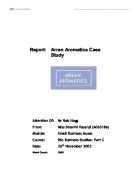Body
- SWOT Analysis
- Overcoming weaknesses and threats
Reiss had the opportunity established but he needed to develop it well and the first problem he encountered was the lack of an interesting theme for the trivia game. However, he solved the problem by implementing his network. One of his friends suggested television as a topic and he realized that it was also a great PR opportunity (as he knew that he wasn’t able to approach the advertising campaigns of the large manufacturers). On the other hand, he also needed financial resources, someone that would take the risk of the new venture. At this moment, he realized that picking up television as a topic will also resolve his lack of resources.
He approached the TV Guide Magazine to team up and soon became partners in the new venture. However, TV Guide Magazine decided to be a licensor, not a manufacturer. They gave Reiss a contract for him to manufacture the game or give it to an established manufacture and keep involved in the project. TV Guide would receive royalties over money collected and will insert (with no cost) five ads in the magazine worth $85,000 each. TV Guide Magazine will also be part of the plan of obtaining free media publicity. The publisher of the TV Guide Magazine will write letters to all producers of TV shows such as: “Good Morning America” and to 25 top TV personalities with a sample of the game. Finally, trough TV Guide’s PR agency many newspapers, radio, and TV stations will be reached.
The actual game was designed by a friend of Reiss which received a royalty of 5% per game sold. However, the questions to be asked were not yet formulated. So he used the TV Guide’s employees to develop the questions and paid them per question. Reiss had the entire responsibility to set up all the operations needed to take the game into the market before the season. So he called an old friend and decided to team up and established Trivia Inc. Sam Kaplan, his new partner, will use his line of credit to purchase supplies for the initial run and would also use his office to handle all day-to-day operations. He will also produce all the ads and the catalog sheets while Reiss will be in charge of the sales and marketing of the product.
Due to Kaplan’s contacts they were able to find suppliers at lower costs than expected but they still needed to resolve the problem of assembly and shipping. Benefitiating again from Kaplan´s network, they hired the Swiss Colony, a company specialized in mail orders: they took the orders, shipped the product and billed it to the retailer. They also acquired a customized computer program from them. Another problem to face was collecting debts. Reiss knew he didn’t have the resources to follow up them as needed so they decided to use Heller Factoring to check credit, guarantee payments, collect the money and pay Trivia Inc. Thanks to the agreements made by these companies, Trivia Inc managed its lack of resources.
Conclusion
In this study case, we can see how Rob Reiss became a successful entrepreneur. He found the opportunity in a market were he had the experience and worked it out. Even though he didn’t have any financial and human resources for the cause, he used his connections to overcome this setback and made crucial partners for the venture. At the end, he managed to design, produce, shipped, billed, advertise and promote the TV Guide Game without any administrative work left to himself. Finally he used the TV Guide Magazine to get free promotion and advertising as he knew he wasn’t able to compete with competitor’s budget. As a result, R&R sold 580,000 units of the TV Guide Trivia Game and everybody benefited from the venture.







